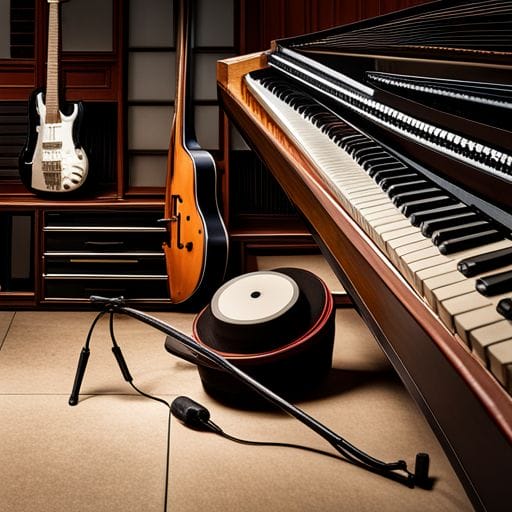Mastering Music 101: Essential Techniques

What software and hardware knowledge does ” offer for music producers
Are you dreaming of improving your musical talents but feel stuck in your current skills level? The secret to advancing revolves around mastering several key techniques. Whether you are a singer, instrumentalist, songwriter, or producer, these can take your ability to another plane. In “”, we will dissect the most crucial practices that can turn you from a mere hobbyist to a respected maestro.
Effective Practising
Contrary to popular belief, it is not the quantity, but the quality of practice that matters most. One hour of targeted practice can potentially be more beneficial than numerous hours of mindless playing. Practice with specific objectives in mind, focus on your weaknesses and continuously challenge yourself.
Establishing a routine and sticking to it is also vital. Be consistent, strive for regular practice rather than cramming all your practice into one long session. Remember, playing an instrument or singing is an athletic activity – regular training in short bursts is more effective.
Musical Theory
Understanding the fundamental theory behind music can make a world of difference in your ability to play intuitively and creatively. You can see music theory as a ‘secret language’ that all accomplished musicians understand. It revolves around concepts such as scales, chords, key signatures, rhythm patterns, and harmonics. A good understanding of music theory allows musicians to interact efficiently and opens doors to an endless world of creativity and performance.
Active Listening
One of the skill sets that is often overlooked in learning music is active listening. Active listening requires engaging with music at a deep level, rather than treating it as background noise. It involves concentrating on elements such as melody, rhythm, harmony, and especially how all these elements work together. Developing this skill can improve your musical ear significantly.
Technique and Posture
Technique is a fundamental aspect of playing any musical instrument. Good technique allows you to play more efficiently, with better tone, dynamics, and accuracy. Remember that fast isn’t always better. Sometimes, slowing down and focusing on each detail of your playing technique could lead to a sizeable improvement in your overall skill.
Hand-in-hand with good technique is the right posture. Bad posture can lead to long term physical injuries. Also, it can inhibit the full range of motion required to play certain pieces of music. As you practice, always be mindful of your posture.
Letting Go of Perfection
While the aim is to make beautiful music, understand that mistakes are part of the learning process. It’s important to accept this rather than allowing the fear of making mistakes to stifle your creativity or enthusiasm. If you miss a note, simply continue. With time, you will find that your accuracy improves as your confidence grows.
In Conclusion
Mastering Music 101 is not about instantaneous progression, but consistent gradual improvement, commitment, and patience. Equipped with these techniques and a passion for music, you will find yourself moving closer and closer to mastery with each practice session. Good luck on your musical journey!
